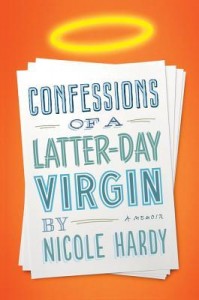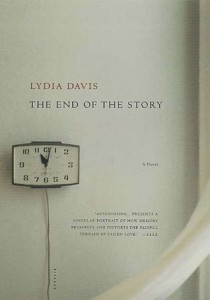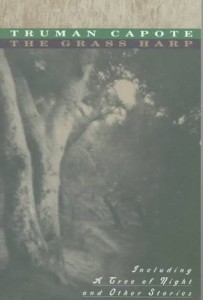With any luck, the Postal Service delivered a package to my dad yesterday. He will have opened it by now and found my standard Father’s Day gift to him, a book. I send him books instead of ties because books are a language my dad and I share, and this year I was especially excited to be able to send him My Bookstore: Writers Celebrate Their Favorite Places to Browse, Read, and Shop edited by Ronald Rice. This book helped me understand just what it is I love about independent bookstores and even better, it filled me with happy memories of a childhood spent in bookstores. So this post is for you, Dad. Happy Father’s Day!
The Bookstore I Was Raised On
I couldn’t possibly tell you the first time I entered Twice Sold Tales in Moscow, Idaho. It was a used bookstore in a craftsman cottage on the edge of downtown. The store was filled, and I mean packed, with books (in shelves and piled on the floor) and because it was my first bookstore, the one my dad took me to often, it all seemed wonderfully normal. In fact, the office where I write today has many things in common with that little house (including book piles in inappropriate places and a closet turned into a bookshelf).
Before I remember my dad introducing me to Betty, the owner, I remember him loading stacks of paperbacks on her counter. She would tabulate the number of Xs stamped on the top of each book (each denoted $0.25 of value) and then pull out a plastic recipe box filled with 3×5 cards and subtract my dad’s purchase from the amount of credit he had on file. One summer, about the time I became engrossed in horror novels, I started going to the bookstore on my own. I was there so often that Betty offered me a job, to be paid in credit. I never did take her up on that, but I loved taking books out one day and returning them for credit the next. I used that store like my personal library and I was glad to pay the fee.
My dad took me to other bookstores too. There was the Waldenbooks in the mall where we waited in a long line (there must have been 20 people) every time a new Patrick McManus came out. It was such a family tradition that my brother and I have both laid claims on my dad’s stash of signed McManus books. We frequented Brused Books in Pullman and often ran into Bruce, the owner, at garage sales around town as he was replenishing his inventory. We spent time in BookPeople of Moscow (even before it moved across the street) although I never got to know Bob as well as the others. It’s a shame because I think he and I would have a lot to talk about now, but I wasn’t ready for that bookstore just yet.
We even had bookstores as destinations when we traveled including Half Price Books in the U District in Seattle (and every other used bookstore on the Ave). And of course, Powell’s in Portland. But Twice Sold Tales holds the most special place in my memory.
My Bookstore(s) Today
Now I live in Seattle and am surrounded by bookstores. It’s easy for me to go to Half Price Books in the U District or Capitol Hill (which is closing or moving) or Lynnwood. I still take my dad there when he visits. He thinks I’m humoring him, but really it’s for me. And not just because he sometimes pays for my armloads of books. I have boxes of books in the basement that I trade in on a semi-annual basis, but I get cash instead of little Xs on a card, so it’s not quite as romantic and the money often gets frittered away.
Bookstores are changing and so am I. The art books that draw my husband and me to the University Bookstore on the Ave are fewer in number. I rarely visit Third Place Books in Lake Forest Park (which has the best essays section) since my writing group up there dissolved. I nip over to Ravenna Third Place as much for the cafe as for the books. The monster Barnes and Noble at U Village that so excited me when I moved here has since closed, and the Barnes and Noble at Northgate (within walking distance), that I was thrilled to see go in now prominently features a Nook display next to the toy section. I most often do not find the books I’m looking for there.
The bookstore I most love is Elliott Bay Books. For over a year I held a weekly writing date with myself there. I wrote more letters than fiction, but that was good too, and invariably I came away with a book (or five) to add to those piles of books on my floor and in my shelves. I’m shy, though, and I don’t know the booksellers like I’d like to. I recognize their faces and they are always kind to me, but it’s hard for me to build relationships with many people at once. Maybe I’m waiting for my dad to introduce them to me (or me to them). And recently, I’ve been really busy, so I’ve been allowing myself to order a hard to find book from Amazon instead of asking at the bookstore like I know I should. Yes, I was seduced by Prime and I hate myself for it.
My Bookstore, the Book
What I loved about this sampler platter of writers’ favorite independent bookstores is that it reminded me of how central bookstores had been in my life. It showed me the community I was allowing to slip by not engaging with it. There are writers you’ll recognize in this book (Wendell Berry, Isabel Allende, Ann Patchett, and more) and some you won’t. Each writer gets a few pages to tell you about their favorite bookstore and four of the stores I named above are featured. There’s a kind of stilted insider lingo that develops in some of the essays (maybe because these writers know they are writing for devoted readers) that it took me some time to get over. It was good to read about other parents who have instilled a love for reading and bookstores in their kids, and that I’m not the only one who gets her books paid for.
But even when the stories start to sound the same (and some are wildly different), the collective voice is saying something I needed to hear. The bookstore, especially the independent bookstore, is the center of my community. It’s where I grew up and where I learned to love books. And it needs me to stay alive.
This book made me trek over to Elliott Bay Books where I bought an armload of books and then walked over to the park, sat in the sun, and read a book by Pico Iyer whose work I first encountered in My Bookstore. And that hour I took for myself to browse and read was a moment of stepping back into myself when I really, really needed it. And I’m grateful to all the people who have supported Elliott Bay Books so it could be there when I needed it. I will return the favor.
I learned this week that Write Bloody will be publishing a book of writing prompts I co-authored with Rebecca Bridge. Maybe that will force me to go in to Elliott Bay and all my other wonderful local stores and introduce myself so I can start building those bookseller relationships that my dad has in his home town.
Why Independent Bookstores?
If you don’t know what the fuss is about Amazon, you’ll understand by the end of this book. You can also read the Melville House blog. A quick summary is that they (legally) evade taxes, squeeze profit margins, and don’t exist in a physical space. I do buy from Amazon (movies, bags for dog poop, and other random items), but when I was looking for an affiliate program, a way to make a small amount of money off the many loving hours I put into this blog, I chose to work with Powell’s instead. And I realize that Half Price Books isn’t an independent bookstore either, but my family comes from Austin and my brother-in-law worked at the store in the U District for years, and I still know people there, so it still feels like home.
About My Dad
My dad’s coming to town next weekend. I’ll let him pretend he’s dragging me to Half Price and Elliott Bay if he wants. I’ll even let him pay for my armloads of books. Or maybe I’ll pay for his. I hope he’ll read My Bookstore: Writers Celebrate Their Favorite Places to Browse, Read, and Shop (which I purchased at Third Place) and remember some of the same wonderful moments I did.
Thank you, Dad, for sharing with me your love of books and bookstores. We’ll miss the Third Place Semi-annual Sale (June 15-16), but we should check out Magus and all the others next weekend and then Tattered Cover in September.
If this review made you want to read the book, pick up a copy of My Bookstore: Writers Celebrate Their Favorite Places to Browse, Read, and Shop from Bookshop.org. Your purchase keeps indie booksellers in business and I receive a commission.
 If I told you Confessions of a Latter-Day Virgin by Nicole Hardy was about a single, Mormon woman wrestling with her faith and her choice to remain a virgin, I wouldn’t be doing the book justice. Saying that it’s a memoir based on her touching
If I told you Confessions of a Latter-Day Virgin by Nicole Hardy was about a single, Mormon woman wrestling with her faith and her choice to remain a virgin, I wouldn’t be doing the book justice. Saying that it’s a memoir based on her touching  The first novel by Lydia Davis, The End of the Story, is both a book about the end of a love affair and a book about writing a book. The first sentence folded into itself wonderfully, “The last time I saw him, though I did not know it would be the last…” The next couple of pages were spare and striking, but eerily familiar, like I’d read them before. It turns out that I had, and in fact Davis repurposed many of her shorts to compile this novel. I find that odd. Although I believe each writer has his or her obsessions and we write about the same themes over and over (sometimes even when we try not to), I like to think that each piece of work has a natural form that we are trying to shape the work into. This vague reworking of previous material seems like treating your own writing like “found” writing and I can’t imagine having the distance from my pieces to do that. But I also believe that Davis is in complete control of her tools, so I kept reading…
The first novel by Lydia Davis, The End of the Story, is both a book about the end of a love affair and a book about writing a book. The first sentence folded into itself wonderfully, “The last time I saw him, though I did not know it would be the last…” The next couple of pages were spare and striking, but eerily familiar, like I’d read them before. It turns out that I had, and in fact Davis repurposed many of her shorts to compile this novel. I find that odd. Although I believe each writer has his or her obsessions and we write about the same themes over and over (sometimes even when we try not to), I like to think that each piece of work has a natural form that we are trying to shape the work into. This vague reworking of previous material seems like treating your own writing like “found” writing and I can’t imagine having the distance from my pieces to do that. But I also believe that Davis is in complete control of her tools, so I kept reading… Maybe the reason you can’t go home again is that you can never see all of what it was—you could only glimpse one angle of it and as you age you see another and then another, but the place you grew up and the people you grew up with are amalgams of all the ways you see them over time. That’s how I felt when reading The Grass Harp by Truman Capote before, during, and after a trip to my hometown, Moscow, Idaho.
Maybe the reason you can’t go home again is that you can never see all of what it was—you could only glimpse one angle of it and as you age you see another and then another, but the place you grew up and the people you grew up with are amalgams of all the ways you see them over time. That’s how I felt when reading The Grass Harp by Truman Capote before, during, and after a trip to my hometown, Moscow, Idaho.